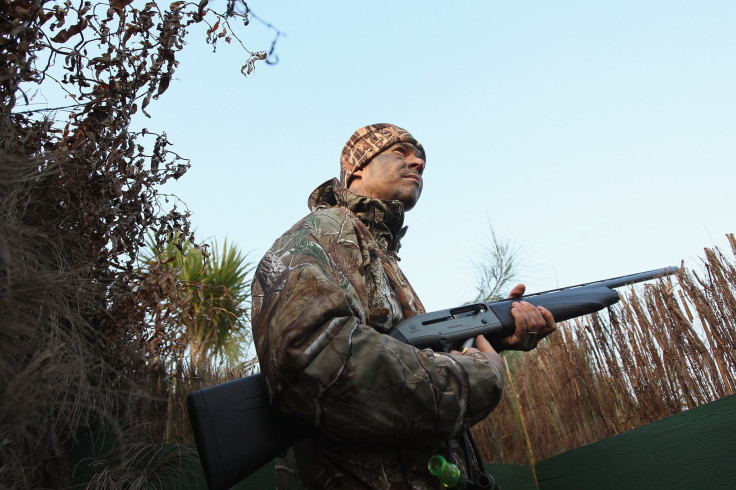New Zealand Gun Ban: All Military Style Weapons Outlawed
New Zealand Prime Minister Jacinda Ardern said all military-style semi-automatic weapons, assault rifles and high capacity magazines will be banned from the country following the mass shootings at two mosques in Christchurch on Friday.
During a press conference Thursday, Ardern said, “Every semi-automatic weapon used in the terror attack on Friday will be banned. This legislation will be drafted and introduced in urgency. Gun owners who wish to surrender their weapons are encouraged to do so starting now.”
She added she hoped the law would be in place before April 11.
“Today I am announcing that New Zealand will ban all military-style semi-automatic weapons.” - New Zealand Prime Minister Jacinda Arden
— Keith Boykin (@keithboykin) March 21, 2019
pic.twitter.com/QcCNPxBhHW
#BREAKING PM announces military style semi-automatics and assault rifles banned, a gun amnesty will be held and a buyback scheme developed. Legislation to be introduced when the House sits at the start of April. #ChristchurchMosqueAttack
— Simon Wong (@wimon_song) March 21, 2019
Calling it the worst act of terrorism in the country, Ardern said it exposed several weaknesses in gun laws in New Zealand and said that “within 10 days of this horrific act of terrorism we will have announced reforms which will, I believe, make our country safer.”
According to the new gun laws, no citizen will be able to buy the weapons without a permit from the police, which she said would be very difficult to get.
“I can assure people that there is no point in applying for such a permit,” she said. She also said high capacity magazines and devices like bump stocks would also be banned.
Ardern said the man responsible for the Christchurch attacks legally purchased the weapons he used and increased their capacity to 30-round magazines, which could be “done easily through a simple online purchase.” She said parts that convert guns into military style semi-automatics will also be banned. “We will ban parts that cause a fire arm to generate semi-automatic, automatic or close to automatic gunfire.”
She announced a buyback scheme for people who currently own guns in New Zealand. The buyback scheme was estimated to cost between 100 and 200 million New Zealand dollars ($69-139 million), depending on the number of weapons receives. Any person found with a gun post the amnesty period would face a fine of up to $4000 and three years in jail.
The buy back is estimated to cost between $100million and $200million. Jacinda Ardern says "that's the price we have to pay". @radionz
— Ben Strang (@BenJStrang) March 21, 2019
The country currently has approximately 7,000 license holder and around 19,000 military style semi-automatic weapons, according to local media, and almost 240,000 license holders of the centerfire semi-automatic guns, usually used by deer shooters. However, according to political consultant Simon Lusk, the main controversy was around the semi-automatic shot guns which were popular with duck hunters and the semi-automatic rimfires that were used to shoot rabbits and possums and owned mainly by farmers.
He said people appeared to support the gun ban on the military style semi-automatics and that there was very little push back as the main purpose of the military style semi-automatic guns was to “kill men.” He did say, however, that the decision to ban the guns used for duck and rabbit shooting had the potential to be highly unpopular among a “very committed group of people.” He said he believed they “almost certainly won’t be banned.”
Ardern also said there would be some limited exemptions for farmers who required guns for pest control and the management of their poultry and livestock.
The buyback on the guns would begin from 3 p.m. local time Thursday (10 p.m. EDT Wednesday) and cautioned all weapons dealers that sales should “now cease” and existing stock should be returned to the suppliers. People were requested to fill online forms on the police website for arranging of the return of their weapons. She asked the people not to walk into a police station unannounced while carrying a weapon.
Other amendments to the gun legislations would be considered Monday and Ardern said that measures to close other loopholes would be announced in time.

© Copyright IBTimes 2025. All rights reserved.





















